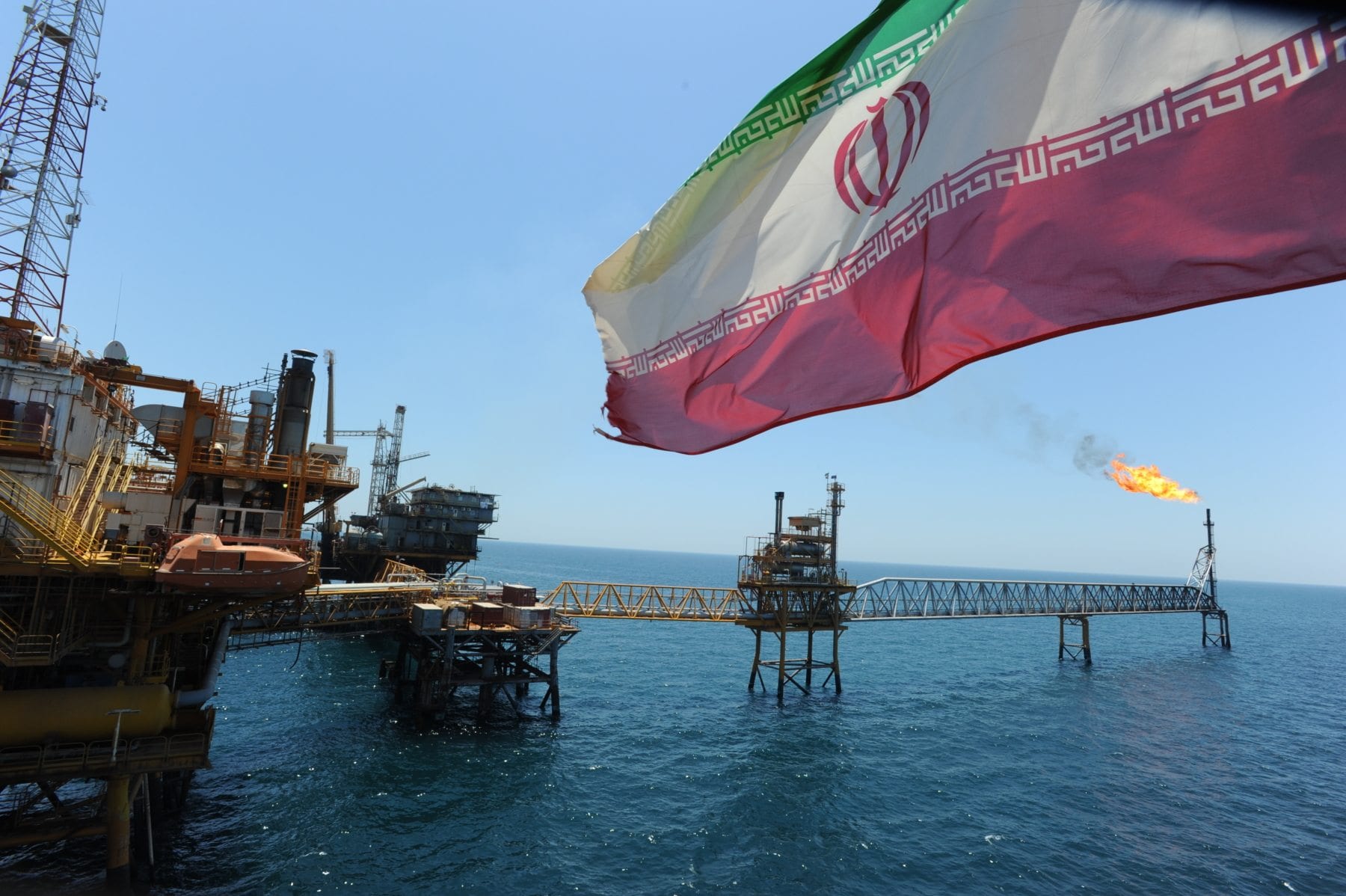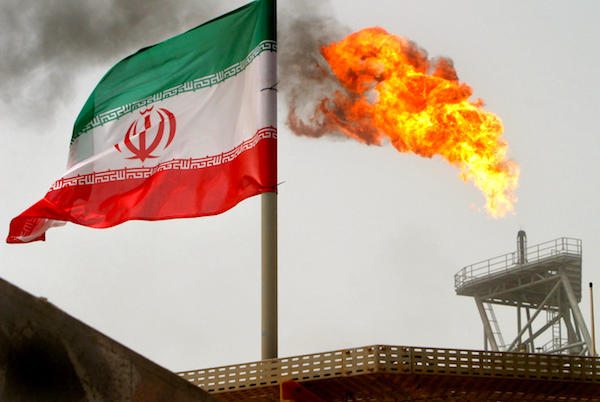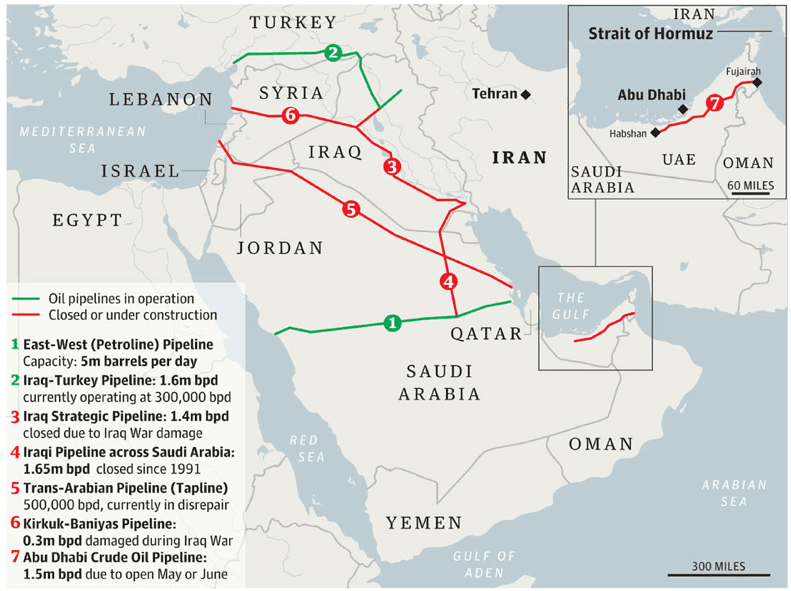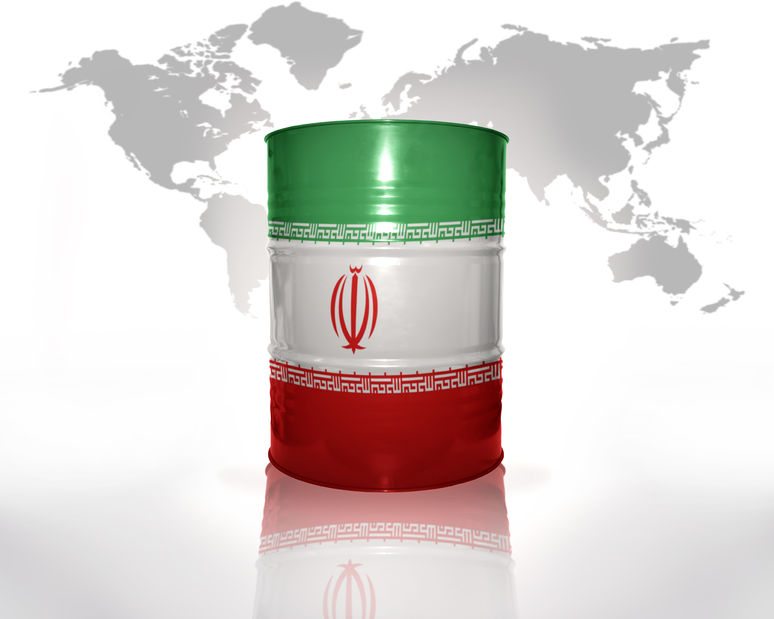While international oil leviathan ExxonMobil is pulling out of half of its exploration blocks in the Kurdish region, Iran is pushing for construction of a new pipeline.
Kurdistan – The American oil giant ExxonMobil has cited decreasing oil production as the official reason for withdrawing from its exploration fields in Betwata, Arbat and Qara Hanjeer in Sulaimaniyah province. The Kurdish government however, states that the withdrawal is due to ExxonMobil’s inability to fulfill its contractual obligations. According to Kurdistan’s Minister of Natural Resources, Asti Hawrami,“Some companies didn’t meet contractual deadlines and according to the contract had to relinquish their areas.”
Locally the move is believed to be partly in response to growing security concerns, though some cite growing interest in regional natural gas reserves. Since the emergence of the Islamic State in Iraq and Syria in 2014, a number of international oil companies operating in Kurdistan have renounced exploration blocks. One such company, Chevron, pulled out of several blocks in Kurdistan in 2015. ISIS has in recent months been performing behind the lines hit and run insurgency attacks against energy infrastructure targets in Kurdistan, including inside Erbil, the Kurdish capital.
In total, international oil companies have relinquished their invested interest in a total of 19 exploration blocks in the province. These withdrawals weigh heavily on the already economically burdened regional government.
Iran, meanwhile, has proposed building a high efficiency pipeline through Iran, allowing for the export of Kurdish oil to Europe and Central Asia. Iran’s oil minister is set to meet with his counterpart from the Baghdad government in the coming week to ensure its approval. The Iranian news agency Fars reports that Iranian Oil Minister Bijan Zanganeh is expected to discuss a wide range of topics with his counterpart Abdul Jabbar Allibi, including the role of Tehran and Iraq in OPEC, the future of the oil market, and specifically the proposed pipeline.
An Iranian pipeline deal would give the KRG direct access to the Persian Gulf and access to international markets. In return, the pipeline and crude oil from it could further Iranian influence in the region, where crude oil is often a hard currency.
The latest report from the KRG Ministry of Natural Resources from November 2016, specifies that the total exported and consumed oil from the Kurdish fields stood at 19,552,432 barrels. A total of 17,629,368 barrels were exported to the Turkish port of Ceyhan, while oil refined locally reached 1,923,065 barrels. The Ministry also estimated regional reserves at 45 billion barrels of crude oil, a reserve that the Kurdish government administers largely independently from the Iraqi government. In addition, there is between 10 to 20 billion barrels outside of KRG control in disputed territories under Iraqi government control, but that remain predominantly Kurdish. Since 2014, these territories have been patrolled by Kurdish Peshmerga forces.
In recent months, Iran has also offered to provide Egypt with oil after the Saudi government-owned oil company Aramco suspended its oil deliveries to Egypt. The move was seemingly in retaliation over a UN Security Council vote by Egypt in regards to Syria that went against Saudi interests. The Saudi government owned oil producer had previously signed a 5-year agreement with the Egyptian government owned company Egyptian General Petroleum Corporation (EGPC), to deliver 700,000 tonnes of refined oil to Egypt at a favorable rate. The agreement was valued at $23 billion dollars and was signed in 2015.
Relations between Egypt and Gulf Arab states changed markedly after Egypt’s army coup in 2013 that overthrew the democratically elected Mohammed Morsi and his Muslim Brotherhood government. Both Qatar and Turkey were allied with the Muslim Brotherhood in Egypt, and the coup turned both countries against the country. Qatar had been providing aid to the Morsi government, but that aid stopped, and Saudi Arabia stepped in to help Egypt. After Saudi Arabia decided to end the agreement, Iran offered to step in to make up for the shortfall.

The Egyptian government is currently considering its options, and has not made any announcements.
Meanwhile, Iranian crude oil exports to major buyers in Asia, including China and India, have reached record highs. According to recent estimates, Chinese firms were expected to lift between 3 to 4 million more barrels of Iranian oil each quarter in 2017 than last year, as China’s demand for foreign crude grows.
John Sjoholm, Lima Charlie News
John Sjoholm is Lima Charlie’s Middle East Bureau Chief, Managing Editor, and founder of the consulting firm Erudite Group. A seasoned expert on Middle East and North Africa matters, he has a background in security contracting and has served as a geopolitical advisor to regional leaders. He was educated in religion and languages in Sana’a, Yemen, and Cairo, Egypt, and has lived in the region since 2005, contributing to numerous Western-supported stabilisation projects. He currently resides in Jordan. Follow John on Twitter @JohnSjoholmLC
Lima Charlie World provides global news, featuring insight & analysis by military veterans, intelligence professionals and foreign policy experts Worldwide.
For up-to-date news, please follow us on twitter at @LimaCharlieNews







![Africa’s Elections | In Malawi, food, land, corruption dominate [Lima Charlie News]](https://limacharlienews.com/wp-content/uploads/2019/06/Malawi-election-Food-land-corruption-480x384.jpg)
![Image The Rwandan Jewel - Peacekeepers, Conflict Minerals and Lots of Foreign Aid [Lima Charlie World]](https://limacharlienews.com/wp-content/uploads/2019/03/Rwanda-Jewel-480x384.jpg)
![Image [Women's Day Warriors - Africa's queens, rebels and freedom fighters][Lima Charlie News]](https://limacharlienews.com/wp-content/uploads/2019/03/Womens-Day-Warriors-Lima-Charlie-News-480x384.jpg)
![Image Zimbabwe’s Election - Is there a path ahead? [Lima Charlie News]](https://limacharlienews.com/wp-content/uploads/2018/09/Zimbabwe’s-Election-Is-there-a-path-ahead-Lima-Charlie-News-480x384.png)
![[Silver lining for China in Zimbabwe’s violent elections][Lima Charlie News]](https://limacharlienews.com/wp-content/uploads/2018/08/Screen-Shot-2018-08-02-at-12.51.35-PM-480x384.png)

